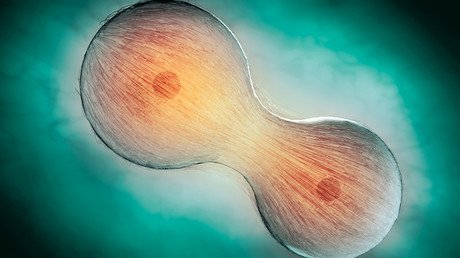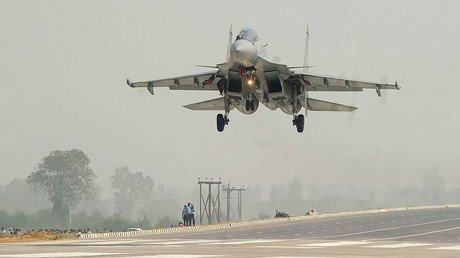Maduro wants to continue relations with the US, except ‘diplomacy and politics’
Venezuelan leader Nicolas Maduro has said that he wants to continue his country’s relationship with the US, just not in the areas of “diplomacy and politics.” Maduro also said he is willing to hold talks with the opposition.
Speaking to the press for the first time since opposition leader Juan Guaidó declared himself interim president on Wednesday, Maduro extended an olive branch to his opponent, who had encouraged protests against the Maduro regime before declaring himself president.
“We are not going to kill each other, the Venezuelan people,” he said. “We will solve our problems without violence.”
Also on rt.com Congresswoman who fixed Democratic primary for Clinton now ‘fixing’ democracy in Venezuela“If I have to go to talk with him (Guaidó), I am willing,” Maduro said. “Hopefully sooner rather than later the opposition will get out of the way of extremism and open a sincere dialogue.”
Maduro severed diplomatic ties with the US on Wednesday, after US President Donald Trump officially recognized Guaidó as Venezuela’s legitimate leader. US diplomats were given 72 hours to leave the country. The Trump administration initially rejected Maduro’s ultimatum, claiming he lacked the authority to make such a decision. However, “non-essential” American diplomats and embassy staff were ordered to leave Venezuela “for security reasons” on Thursday.
Also on rt.com ‘Venezuela gets its Maidan’: Ukrainian minister makes connection between regime change opsMaduro then ordered the closing of Venezuela’s embassy and consulates in the US on Thursday evening.
In his speech to the press on Friday, Maduro denounced US Secretary of State Mike Pompeo’s offer of $20 million in humanitarian aid to Venezuela – to be given to opposition figures – and accused Washington of orchestrating a coup to overthrow his government.
Mass street protests began on Monday, after a National Guard unit in Caracas staged a mutiny. The soldiers were arrested, but protests swelled in the following days. Several people were killed in the demonstrations, which have since begun to peter out.
Civil unrest in Venezuela has been exacerbated by the country’s dire economic situation. Whereas the country’s oil wealth was once the envy of Latin America, government mismanagement and a global downturn in oil prices have seen inflation skyrocket, and almost three million Venezuelans flee the country. The US has also sanctioned Maduro and a host of his officials, and before Guaidó’s declaration it was mulling targeting the country’s oil industry.
Despite the belligerent rhetoric on either side, the United States remains a key customer of Venezuelan oil. The US imported around 17 million barrels per month from socialist Venezuela at the end of 2018, almost half of the country’s total oil exports.














